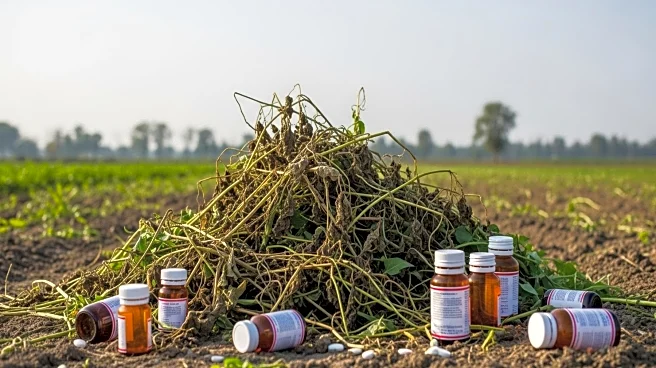What's Happening?
Smallholder farmers are experiencing significant financial losses due to high mortality rates among calves and lambs before weaning. Bongani Duma, an animal health technician, attributes these losses to poor management and misuse of medicines and vaccines. Common mistakes include underdosing, using unsafe home remedies, and incorrect dipping practices. These practices lead to ineffective treatments and drug resistance, ultimately harming livestock health and farmer profits.
Why It's Important?
The misuse of medicines in livestock farming has broader implications for food safety and public health. Ineffective treatments can lead to drug-resistant strains of diseases, posing risks to both animal and human health. The financial impact on smallholder farmers can affect local economies and food supply chains, highlighting the need for better education and resources for farmers.
What's Next?
Duma recommends best practices for animal health, including correct dosing, rotating remedies, and seasonal vaccinations. These measures aim to reduce livestock losses and improve profitability. The workshop emphasizes the importance of proactive health management by farmers to prevent future losses.
Beyond the Headlines
The issue may lead to discussions on the ethical responsibilities of pharmaceutical companies in educating farmers about proper medicine use. It could also prompt policy changes to improve access to veterinary services and training for smallholder farmers.











